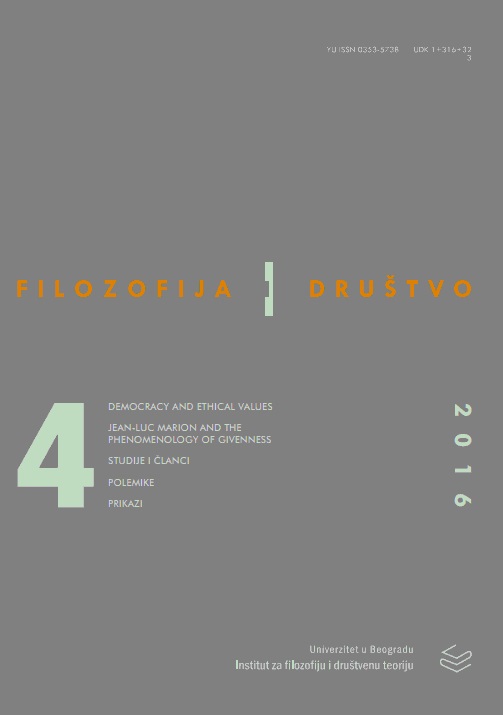Husserl’s Theory of Noematic Sense
Husserl’s Theory of Noematic Sense
Author(s): Olga NikolićSubject(s): Epistemology, Phenomenology
Published by: Institut za filozofiju i društvenu teoriju
Keywords: Husserl; noema; sense; correlation; transcendental phenomenology
Summary/Abstract: After Husserl’s transcendental turn and the discovery of the correlation between consciousness and the world the concept of the noema becomes one of the constant leitmotifs of Husserl’s philosophy. My paper will be devoted to the clarification of this concept and its implications for Husserl’s theory of sense. The leading question will be: How can the noema play the role of both the sense and the objective correlate of the intentional act? I will start with presenting the problematic of sense in Husserl’s phenomenology from the Logical Investigations to the Ideas I. The central part of my paper will be devoted to the influential debate regarding the interpretation of the noema. Finally, I intend to point out the most important ways in which the notion of the noema becomes enriched in later Husserl’s philosophy, as well as the difference between linguisitic and non-linguistic sense, based on the Analyses Concerning Passive and Active Synthesis. I hope to show that Husserl’s phenomenological theory of sense offers a valuable alternative to the exclusively language-oriented theories of sense.
Journal: Filozofija i društvo
- Issue Year: 27/2016
- Issue No: 4
- Page Range: 845-868
- Page Count: 24
- Language: English

